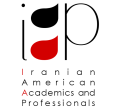IAAP is proud to host 2012 Student Scholarship Award Ceremony.
Date & Time: Thursday November 8, 2012 – 6:45 PM RSVP Here
Location: Montgomery Community College (Faculty Lounge, Campus Center) (Get Directions, Campus Map )
Program Agenda:
- 6:45 pm: Registration and Socialization
- 7:15 pm: Opening Remarks, and Welcoming note by Dr. Aram Hessami
- 7:20 pm: IAAP, and the Scholarship Award Selection Criteria
Dr. Manouchehr Farkhondeh, President, IAAP
- 7:35 pm: Dinner
- 8:10 pm: Lecture by ”Ashkan Emadi, MD, PhD ”, “Targeting Cancer Metabolism: A New Hope Ready for Prime Time”
- 8:50 pm: Scholarship Awards
Mr. Hossein Ebneyousef, Chair of Student Scholarship Committee, IAAP
- 9:30 pm: Musical performance
- 10:00 pm: Closing Remarks
Speaker: Ashkan Emadi, MD, PhD
Language: English
 Synopsis:
Synopsis:
In contrast to normal cells, rapidly dividing cancer cells genetically reprogram their nutritional requirements to match an increased metabolic demand. The two main nutrient sources for growth and survival of cancer cells are glucose, a sugar, and glutamine, an amino acid. The preference for glucose was noted approximately 90 years ago and is now best illustrated by the fact that positron emission tomography (PET) scans are able to detect many new and recurrent cancers. We and others have connected key genes in leukemia, lymphoma and other cancers to glucose and glutamine metabolisms in cancer. After validating the proof-of-concept, we are now exploring the therapeutic potential of targeting several key enzymes in glycolysis, mitochondria and glutamine metabolism for already approved and future anti-neoplastic drugs. This presentation demonstrates a personal journey, several collaborations, failures and successes of studies that are underpinned by rigorous scientific foundations, upon which new ways of treating cancers and in particular, leukemias are being researched.
About the Speaker:
Ashkan Emadi, M.D., Ph.D. is a board certified Hematologist/Oncologist and an Associate Professor of Medicine at the University of Maryland School of Medicine Marlene and Stewart Greenebaum Cancer Center. He previously served as Medical Officer at the Division of Hematology Products (DHP), Office of Hematology and Oncology Products (OHOP), Center for Drug Evaluation and Research (CDER), United States Food and Drug Administration (FDA), and as Visiting Scientist at Division of Adult Hematology, Department of Internal Medicine, School of Medicine, Johns Hopkins University.
Dr. Emadi received his medical doctorate (M.D.) from Tehran University of Medical Sciences in 1996 and his Ph.D. in Organic Chemistry at the Illinois Institute of Technology in 2004. He developed novel methodologies for the synthesis of multiple naphthoquinone derivatives exhibiting HIV integrase inhibitory and anti-neoplastic activities. He was granted “Highest Standards of Academic Achievement Award” for this work, and holds the patent on the compounds and their synthesis. Following completion of his Ph.D., he completed his internship and residency in Internal Medicine at the University of Kentucky and the University of Cincinnati, respectively. Dr. Emadi finished his Hematology/Oncology fellowship at Johns Hopkins University Sidney Kimmel Comprehensive Cancer Center. Dr. Emadi’s translational and clinical research is focused on exploiting cancer metabolism. He works on developing new drugs and novel targets for the treatment of blood cancers and solid tumors. Dr. Emadi has published in several prestigious journals such as New England Journal of Medicine, JAMA, Blood, Organic Letters, Bioorganic and Medicinal Chemistry, Nature Reviews Clinical Oncology and Science Translational Medicine.
Fee (including dinner): $5 Students, $15 Public
RSVP: Please click here to RSVP for dinner.



